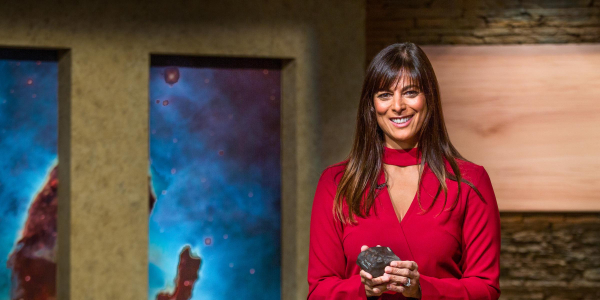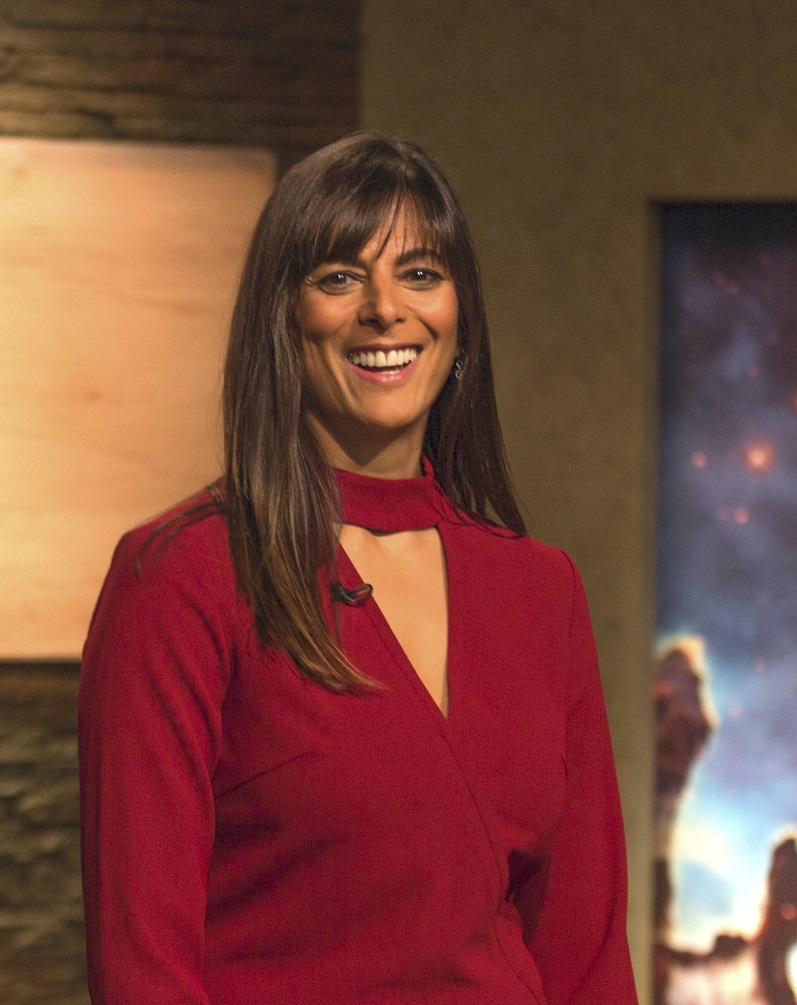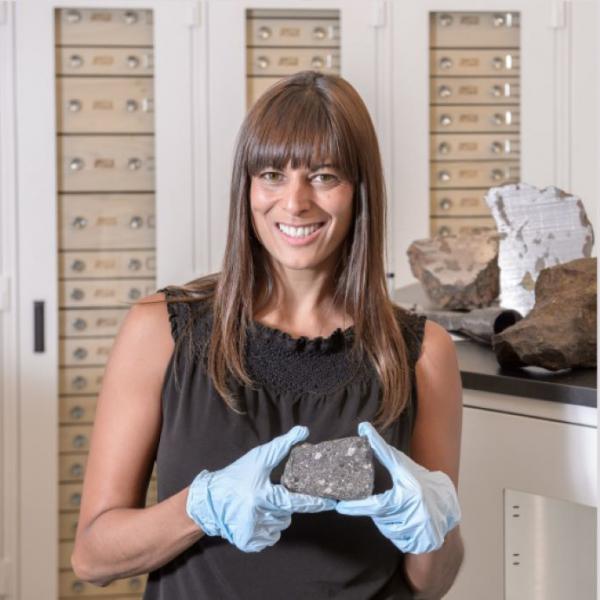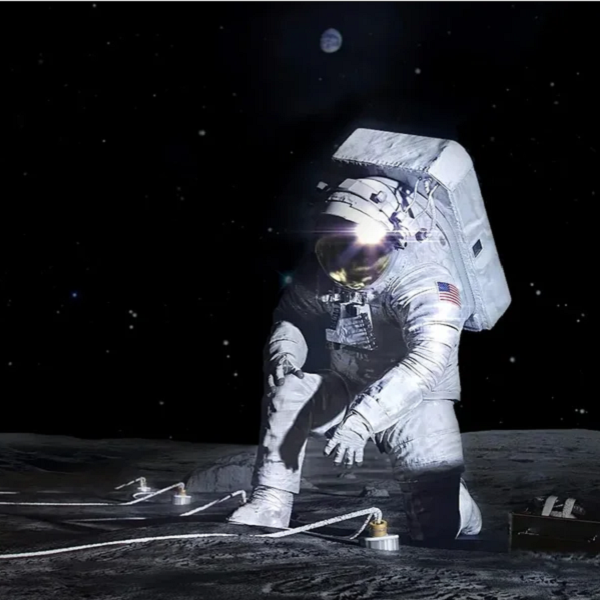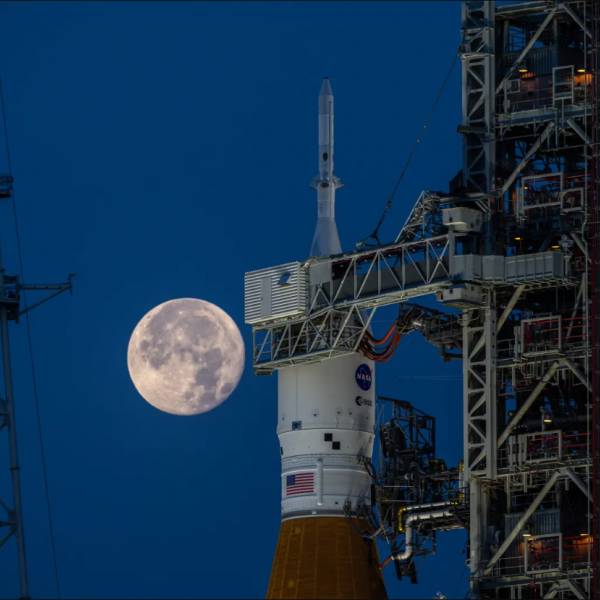Planetary scientist Meenakshi Wadhwa will deliver the 2023 Robert M. Walker Distinguished Lectures about the Mars Sample Return Program
2023 Robert M. Walker Distinguished Lecture Series
The planet Mars has fascinated humans for centuries. But it is only in the last few decades that robotic orbiters, landers, and rovers have allowed us to explore Mars in ever increasing detail. Nevertheless, some of our biggest questions relating to the formation and planetary-scale evolution of Mars - including its geologic and climate evolution, the history of water and volatiles, as well as the potential for the development of life in its ancient past - can only be addressed by detailed analyses of carefully selected martian samples in state-of-the-art Earth-based laboratories. The campaign to return Mars samples to Earth is currently underway.
Meenakshi Wadhwa, School Director and Foundation Professor at the School of Earth and Space Exploration at Arizona State University studies the formation and evolution of the Solar System through the analysis of planetary materials including meteorites, Moon rocks and other extraterrestrial samples returned by spacecraft missions. She will deliver the 2023 Robert M. Walker Distinguished Lectures, starting with a scientific colloquium on October 25 titled “Exploration of the Solar System via Sample Return Missions.” On October 26, she will deliver the public lecture “Bringing Mars Samples Back to Earth.” She will talk about the samples that have already been collected from Mars, those expected to be collected, and how and when those samples are planned to be returned.
"It’s because of the lunar samples, collected during NASA’s Apollo missions between 1969 and 1972, that we know that the Moon was probably formed when a Mars-sized planet smashed into Earth 4.5 billion years ago," said Wadhwa, explaining the importance of bringing space rocks back to Earth in a recent Nature editorial. "I want the same for materials from Mars. I’ve dreamt of bringing back samples from there ever since I was a graduate student studying meteorites in a laboratory."
Wadhwa is a planetary scientist and educator interested in the time scales and processes involved in the formation and evolution of the Solar System and planets. Her research group is best known for developing novel methodologies for high-precision isotope analyses and the application of high-resolution chronometers for understanding 1) the time scales of events in the early Solar System (such as the formation of the earliest solids, as well as accretion and differentiation of planetesimals and the terrestrial planets); 2) the processes occurring in the solar protoplanetary disk and on planetesimals; and 3) the abundance and origin of water and other volatiles on rocky bodies in the Solar System. She has hunted for meteorites in Antarctica with the U.S. Antarctic Search for Meteorites (ANSMET) program.
She received her doctorate from Washington University in St. Louis and was a postdoctoral researcher at the University of California at San Diego. She was subsequently Curator in the Department of Geology at the Field Museum in Chicago before moving to Arizona State University (ASU) as a Professor in the School of Earth and Space Exploration in 2006. At ASU, she served as director of the Center for Meteorite Studies from 2006 to 2019. In July of 2019, she was appointed as director of the School of Earth and Space Exploration. She additionally holds an appointment as Distinguished Visiting Scientist and serves as the Mars Sample Return Principal Scientist at the Jet Propulsion Laboratory in Pasadena, CA.
Brad Jolliff, Director of the McDonnell Center for the Space Sciences, said, "When Mini graduated from Washington University, we knew she would be a star, but she has indeed risen beyond all expectations. Bob Walker would be most proud and pleased with her accomplishments and to know that she is returning to Washington University in St. Louis to deliver the Robert. M. Walker distinguished lectures."
She has served on numerous advisory committees for NASA and the National Academies of Science, Engineering, and Medicine. She was President of the Meteoritical Society in 2019-2020 and chaired the Science Committee of the NASA Advisory Council from 2018 to 2022. She is a recipient of the Fulbright-Nehru Academic and Professional Excellence Award (2015), the Guggenheim Fellowship (2005), and the Nier Prize of the Meteoritical Society (2000). She was awarded an American Council on Education Fellowship (2018-2019) and became a Fellow of the American Geophysical Union in 2019. She became a Geochemistry Fellow of the Geochemical Society and the European Association of Geochemistry, and was awarded the J. Lawrence Smith Medal of the National Academy of Sciences in 2021. She was elected as a member of the National Academy of Sciences in 2023. Asteroid 8356 has been named 8356 Wadhwa in recognition of her contributions to meteoritics and planetary science.

